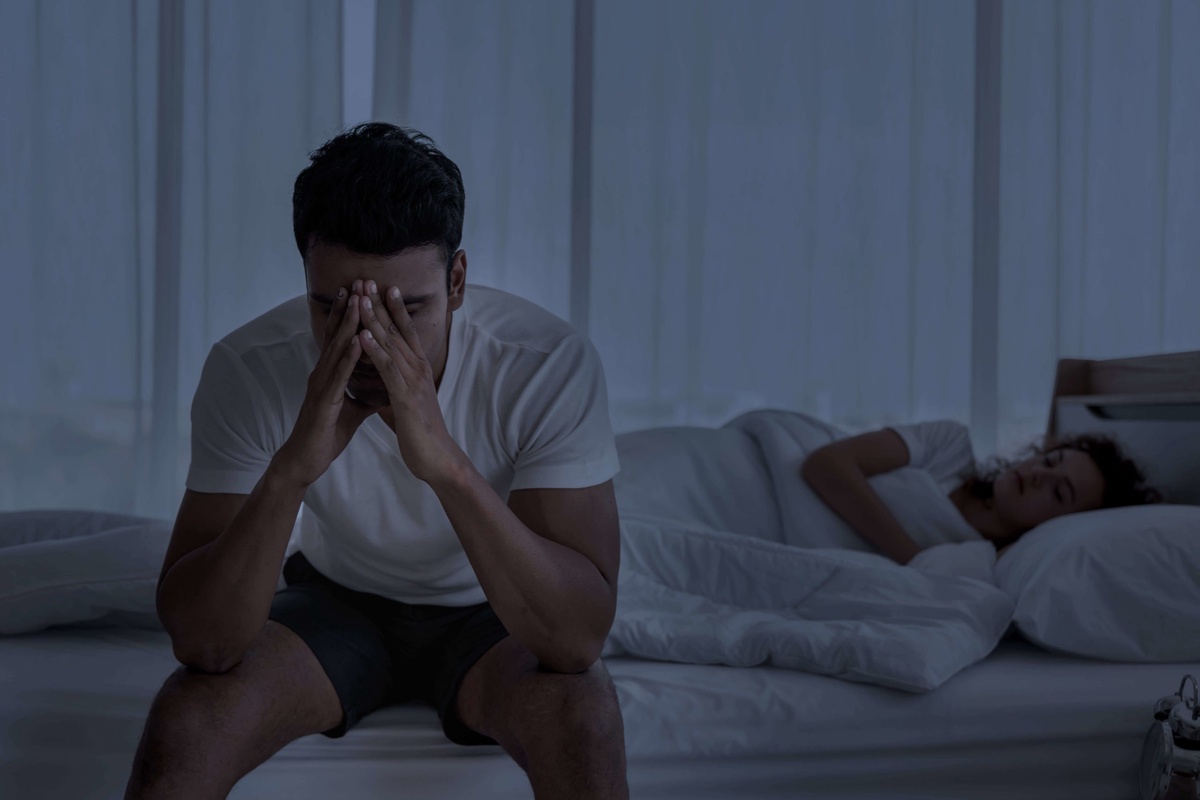Sleep is important for everyone's health and well-being, but it can be very hard for people with fibromyalgia to get a good night's sleep. Fibromyalgia is a chronic pain disease that causes widespread musculoskeletal pain and tenderness. Fibromyalgia often comes with a lot of different symptoms, such as tiredness, memory loss, and mood swings. Not getting enough sleep can make all of these problems worse. This piece talks about the complicated connection between insomnia and fibromyalgia. It looks at the underlying causes, how they affect people's quality of life, and ways to deal with sleep problems when you have a chronic pain condition.
Understanding Fibromyalgia and Insomnia:
Fibromyalgia affects millions of people around the world; in fact, it's thought that about 2–8% of the world's population has this complicated disease. Researchers think that fibromyalgia is caused by a mix of genetic, environmental, and neurological factors, but they don't know for sure. The nervous system becomes overly sensitive to pain messages, which is known as central sensitization. This is thought to be a key part of how fibromyalgia works.
People who have fibromyalgia often also have insomnia symptoms , which means they have trouble going asleep, staying asleep, or getting restful sleep. Up to 75% to 90% of people with fibromyalgia have trouble sleeping, with sleeplessness being the most common type. In a vicious loop, both fibromyalgia and insomnia make the symptoms of the other worse.
How Pain and Sleep Work Together:
Pain and sleep work together in a complicated way. People who have chronic pain may have trouble getting asleep, wake up often during the night, and not be able to get to restorative stages of sleep like deep, slow-wave sleep and rapid eye movement (REM) sleep. On the other hand, not getting enough or good quality sleep can make pain worse, lower pain levels, and help chronic pain conditions like fibromyalgia start and stay active.
There are many things going on underneath the surface that connect pain and sleep problems. Neurotransmitters, including serotonin, norepinephrine, and gamma-aminobutyric acid (GABA), are very important for controlling how we feel pain and when we sleep and wake up. Problems with these neurotransmitter systems, the hypothalamic-pituitary-adrenal (HPA) axis, and the control of inflammatory pathways all play a part in how chronic pain and sleep problems are linked.
Effects on Quality of Life:
The way fibromyalgia and insomnia affect each other can have big effects on a person's quality of life. Fibromyalgia symptoms like pain, tiredness, memory loss, and mood swings are made worse by sleep problems. This creates a cycle where symptoms get worse and sleep problems happen again. This can make it hard to go about daily life, be productive at work, have good relationships with other people, and feel mentally healthy.
People who have both fibromyalgia and insomnia are also more likely to have other conditions at the same time, such as depression, anxiety disorders, cardiovascular diseases, and metabolic disorders. The problems that people with fibromyalgia already have are made even worse by these other conditions. This shows how important it is to deal with sleep problems as part of overall treatment plans.
Strategies for Management:
When dealing with sleep problems in people with fibromyalgia, it's important to take a multifaceted approach that treats both the pain condition and the sleep disorder. There is no one-size-fits-all answer, but the following have been shown to help people with fibromyalgia sleep better and feel better overall:
Sleep hygiene: Getting into good sleep habits, like sticking to a regular sleep plan, making a relaxing bedtime routine, and making sure your bedroom is the best place to sleep, can help you get better sleep.
Cognitive behavioral therapy (CBT) for insomnia Insomnia can be caused by unhealthy ideas and behaviors, and CBT-I is a structured, evidence-based intervention that focuses on changing these. Patients with fibromyalgia have been shown to sleep better after using this treatment.
Medications: Medications like gabapentinoids, tricyclic antidepressants, and selective serotonin reuptake inhibitors (SSRIs) may be given to help people with fibromyalgia deal with their pain and sleep problems. But it's important to think carefully about possible side effects and how each person will react.
Physical Activity: Regular exercise, especially low-impact aerobic and strength-training exercises, can help people with fibromyalgia sleep better, feel less pain, and be able to do more generally.
Mind-Body Interventions:
Yoga, tai chi, awareness meditation, and progressive muscle relaxation are some of the practices that can help ease pain, lower stress, and boost relaxation, all of which can lead to better sleep.
As you can see, fibromyalgia and insomnia are connected in a complicated way. Both conditions make the symptoms of the other worse. People with fibromyalgia who have trouble sleeping have a lower quality of life, more pain, and more comorbidities. Taking care of sleep problems as part of a complete plan for managing fibromyalgia is very important for getting better results and improving general health. People with fibromyalgia can better deal with the problems of chronic pain and sleep problems by using a multifaceted approach that includes behavioral, pharmacological, and lifestyle changes. This will ultimately lead to better quality of life and functional results.


No comments yet